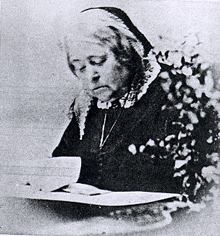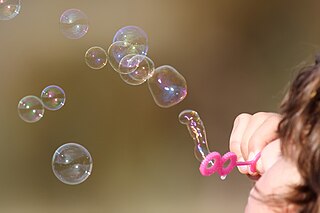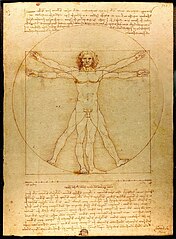Ditch the Worksheets, Become a Picasso, a Kindergartener and a Gifted@Play!
A huge outpouring of research and literature has been coming out on the importance of play and how it is essential to creativity, the arts and science, one's well being, and so forth. From Richard Louv's (www.richardlouv.com) work on children playing in the woods and getting back in touch with nature to Mihaly Csikszentmihalyi's (http://www.cgu.edu/pages/4751.asp) older (but seminal) work on flow and creativity much ink has been spilled. Yet even years ago, there were gifted trailblazers like Elizabeth Palmer Peabody who believed in the importance of play in the 19th century and based their life's work on it (my blog post for open source - http://opensource.com/education/13/8/open-education-ideals-peabody).
ps. in case you're not familiar with her, Elizabeth Palmer Peabody was the sister-in-law of author Nathaniel Hawthorne and educator Horace Mann who often overshadowed her. She was a gifted child and adult who became an author, bookseller, publisher, educator, a Transcendentalist, and a friend to the Ralph Waldo Emerson and the Alcott family.
ps. in case you're not familiar with her, Elizabeth Palmer Peabody was the sister-in-law of author Nathaniel Hawthorne and educator Horace Mann who often overshadowed her. She was a gifted child and adult who became an author, bookseller, publisher, educator, a Transcendentalist, and a friend to the Ralph Waldo Emerson and the Alcott family.
Few things make my blood boil than seeing Elizabeth Palmer Peabody's original mission and concept of kindergarten go up in flames with standardized testing and worksheeting children to death. Today, she must be rolling over in her grave. Her whole life's calling of bringing Friedrich Frobel's (http://www.froebelweb.org/) original concept of kindergarten (or children's garden) seem gone. Both Frobel and Peabody advocated that: 1) humans are creative beings and 2) play is the engine of real learning. Both ideals seem naive and redundant with standardized testing. And yet, Frobel and Peabody believed that play was not idle behavior but served biological purposes: to discover how things work and to help create meaning from their experiences.
What is particularly striking when you compare Frobel and Peabody's work on education (as well as the research and literature on the importance to play) and today's emphasis on standardized testing is how far they differ. Standardized tests are convergent; so are IQ tests. These involve solving well-defined, rational problems that have one correct answer. Worksheets and the drill-and-kill approach are examples of convergent thinking. For divergent thinking, by contrast, think Picasso, The Muppets or old school Sesame Street, the movie Hotel Transylvania, the Captain Underpants or Horrible Histories series, work by Richard Scarry or Roald Dahl - the 'way out there' stuff.
Then again, you might just read Mihaly Csikszentmihalyi's book, Creativity: Flow and the Psychology of Discovery and Invention (1996) (http://www.amazon.com/Creativity-Flow-Psychology-Discovery-Invention/dp/0060928204). Though it's a bit dated, Csikszentmihalyi conducted a large-scale study on 91 creative individuals who became eminent in their fields including some Nobel Prize winners. Ravi Shankar, Madeleine L'Engle, Freeman Dyson, Linus Pauling, Jonas Salk, Benjamin Spock, and many others were included in the study. Many such creative individuals are now dead but they were true innovators and/or highly influential in their domain.
Csikszentmihalyi pioneered the field of creativity and flow and what he found is especially relevant for gifted parents and kids:
1. All creative individuals remained childlike for life. The sense of wonder, the sense of play stayed. The feeling of awe stayed too. The intense curiosity never went away, even if one was 90 years old. Please gifted parents, keep this point in mind!!!
2. The parents of Ravi Shankar and others did not push their children to study. The child's spontaneous interest led to the involvement. IF the parents had pushed or been more directive, it's very likely that the child's interest would have flagged and then evaporated.
3. Interestingly, school had very little effect. Many in the study had no memory of a special relationship with a teacher. Many, too, were not identified as being gifted in school and/or as children.
4. There is no single way to teach a domain or a subject. Instead, there are numerous ways to learn. Intrinsic motivation and rewards were/are key to learning.
5. New ideas, new discoveries, new ways of thinking, new patterns, new relationships come from mind wandering and doing what you love. Filling out a worksheet isn't normally something a child loves, but is often busyness and not conducive to creativity.
Csikszentmihalyi looked at creativity across the life span and with gifted kids in his Davidson article (http://www.davidsongifted.org/db/Articles_id_10009.aspx) which parents might consider reading too.
More recently, Sir Ken Robinson (http://sirkenrobinson.com/) supports some of Csikszentmihalyi's ideas on creativity and goes further by saying schools are killing creativity. He champions a radical rethink on educational systems across the globe to help nurture creativity in the digital age. He doesn't believe we should keep the status quo or continue worksheeting children to death. Instead, he values letting a child play, be curious and creative, make discoveries, and find their passion and calling in life.
When we think about becoming a Picasso, a Leonardo da Vinci or a gifted@play, we might consider that to be a creative genius you often have to be at the crossroads of the arts and the sciences. Great art and great science involve a leap of imagination and fantasy with a dose of reality. You need the openness, passion, and rebelliousness of a mad artist or a Picasso and the playfulness, innocence, energy, and humbleness of a kindergartener. And you don't need just one idea, you need many. As Leonardo da Vinci's drawings and work remind us: the sciences and the arts were not mutually exclusive to Renaissance humanists. Leonardo's artistic work was as impressive and innovative as his studies in science and engineering. Today, everyone seems to be leaping on the role and impact of science but neglect the role and impact of the arts in the process.Csikszentmihalyi looked at creativity across the life span and with gifted kids in his Davidson article (http://www.davidsongifted.org/db/Articles_id_10009.aspx) which parents might consider reading too.
More recently, Sir Ken Robinson (http://sirkenrobinson.com/) supports some of Csikszentmihalyi's ideas on creativity and goes further by saying schools are killing creativity. He champions a radical rethink on educational systems across the globe to help nurture creativity in the digital age. He doesn't believe we should keep the status quo or continue worksheeting children to death. Instead, he values letting a child play, be curious and creative, make discoveries, and find their passion and calling in life.
And yet what drives creative people like Leonardo da Vinci or Robert Ballard to the bottom of the ocean for the RMS Titanic, is curiosity and a burning desire to know. They are truth seekers. They want to know. They want to find the answers to their questions.
Famed paleoanthropologist Maeve Leakey summed it best, "exploration is an obsession. The more I discover, the more I want to know." In 1999 Leakey made discovery in Lake Turkana, Kenya that completely changed the understanding of early human ancestry. With her field and lab work, Maeve Leakey earned an international reputation in paleoanthropology, long a male-dominated speciality. From an early age, she had been fascinated by animal life, collected insects, and explored tidal pools with the encouragement of her father. She had planned to study marine zoology, but the 1960s there were no jobs open to women. Instead, her curiosity was piqued by advertisement in The Times of London by renowned paleoanthropologist Louis Leakey looking for a young zoology graduate to work near him. She was soon off to East Africa. How her life would be so different if she didn't stay a kindergartener at heart.
Parents of gifted kids, please take heed.
This is a blog post for Hoagie's Gifted@Play blog hop.
This is a blog post for Hoagie's Gifted@Play blog hop.




